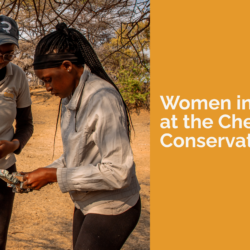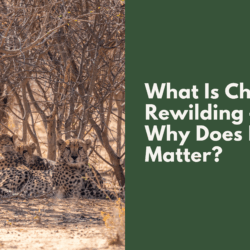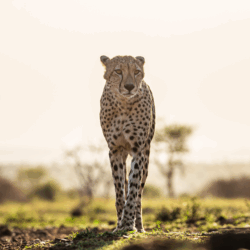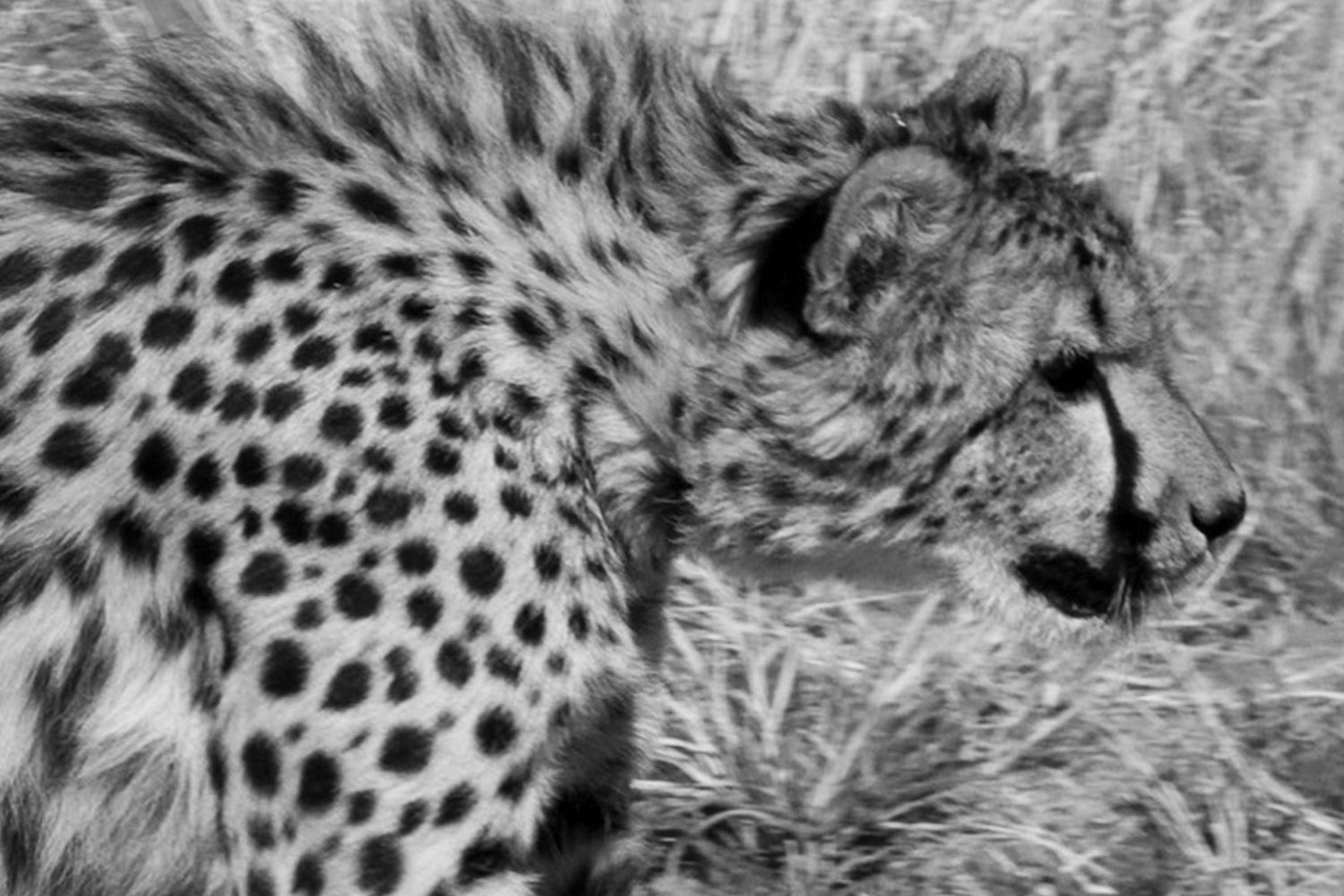Meet the team: Bogdan Christescu, PhD
-

- by Hannah Mulvany 3 May 2023
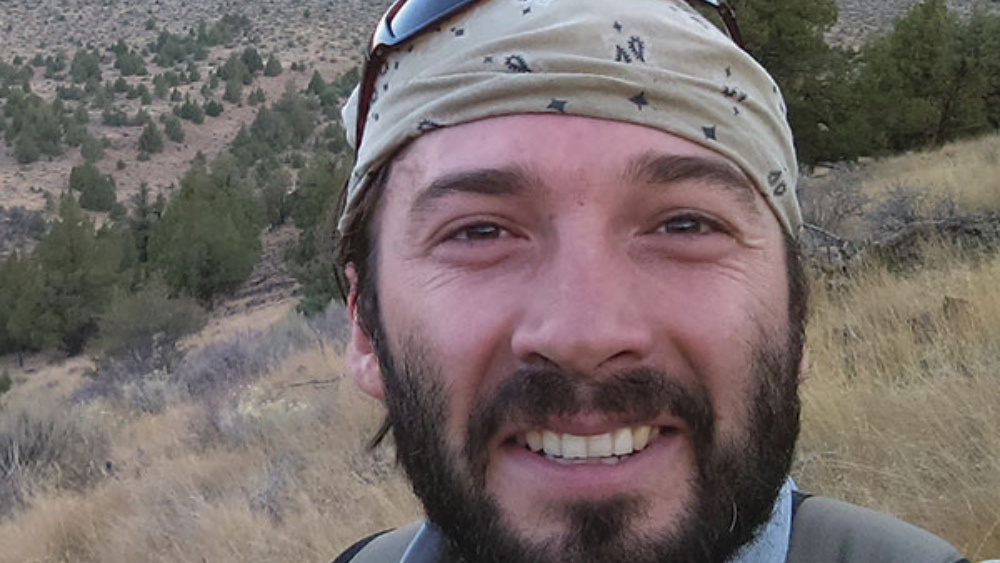
Bogdan Christescu, PhD, is CCF’s Assistant Director for Ecological Research. He shared some insight into the work he does, his research, and his journey at CCF so far. Enjoy!
February 2023 marked my two-year anniversary as the Assistant Director for Ecological Research at the Cheetah Conservation Fund (CCF). When I joined the team, results from many of the long-term research projects happening at CCF and across the cheetah’s range in Africa were being published in a variety of scientific journals. In April 2021, research on the effectiveness of scat detection dogs for locating cheetah scat was published. That same month, we also published a research paper on scent marking behaviours in leopards and cheetahs. I help disseminate the data that CCF has collected on cheetah ecology and behaviour, to form better conservation strategies. Throughout 2021, research was published on almost a monthly basis. The topics CCF researched ranged widely from the effectiveness of livestock guarding dogs at minimising human-wildlife conflict, captive rearing of African wild dogs, and hornbill biology. The unifying theme throughout all the research is the cheetah. The information we collect across the cheetah’s range helps us to achieve two core missions – save the cheetah and conserve the cheetah’s wild habitat range.

Though I began formally working at CCF in 2021, I have been involved with CCF since 2016. I first came to CCF as a Visiting Researcher after completion of my first postdoctoral position with the University of Cape Town in South Africa. I worked in the Northern Cape of South Africa the largest province in South Africa, bordering both southern Namibia and Botswana. My postdoc research in the Northern Cape was focused on carnivores as part of project PEACE Predator Ecology and Coexistence Experiment. The project aimed to test the ecological and economical effectiveness of nonlethal methods at preventing livestock predation. In short, we were studying human-wildlife conflict, which constitutes one of the primary threats to the cheetah.
While I was studying in South Africa, Drs Laurie Marker, CCF’s Founder and Executive Director, and Anne Schmidt-Küntzel, CCF’s Assistant Director for Animal Health and Research, were very busily gathering the leading researchers in the conservation, biology, and ecology of cheetahs with the goal of publishing the first-ever comprehensive scientific textbook on the species Cheetahs: Biology and Conservation. I was very happy to be given the opportunity to contribute to six chapters of the book. While for me this was an outstanding opportunity, CCF is well-known for bringing people together on research and conservation projects across the cheetahs’ range.
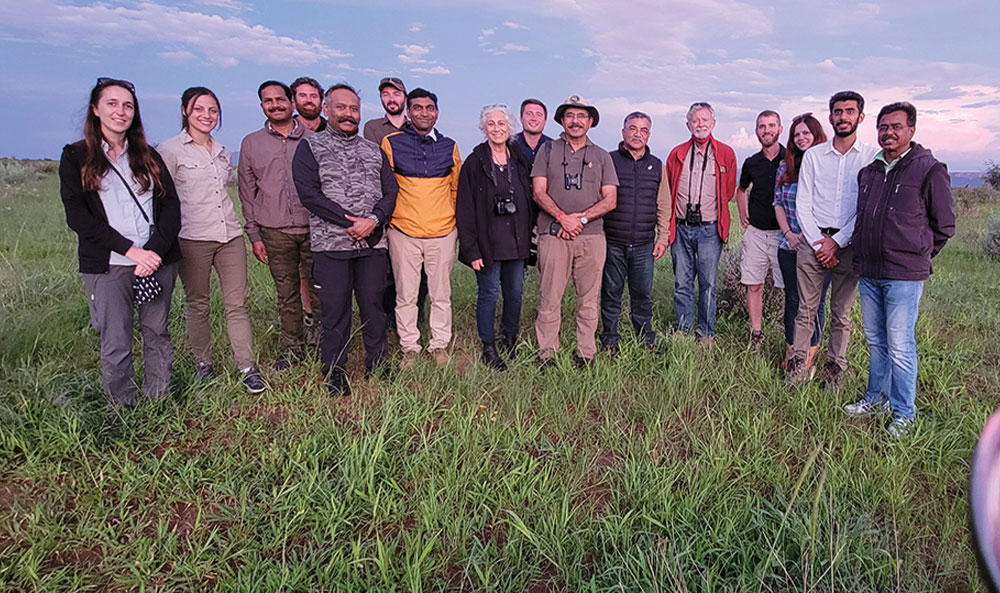
Many countries – former and current cheetah range countries with absent or small cheetah populations – are increasingly interested in reintroducing cheetahs. It is important to understand regional and local issues and underlying causes to effectively minimise the illegal wildlife trade. Talking with the pastoral farmers in Somaliland, we are beginning to get a better idea of the current distribution of cheetahs, as well as the role of human-wildlife conflict in the supply side of the illegal wildlife trade. CCF’s dedicated team in Somaliland are currently caring for more than 90 confiscated cheetah cubs, which is likely the tip of the iceberg of a widespread and significant challenge to the persistence of wild cheetah populations in the Horn of Africa. None of these projects and associated conservation recommendations would be possible without a substantial volume of research conducted at every step. Your support allows CCF to be a leader in cheetah research. Thanks to you, we are positioned to serve as a Centre of Excellence in comprehensively studying the species and its ecosystems.
If you’d like to support the research that CCF does, which helps us to understand and, therefore conserve the cheetah more effectively, please consider making a donation.
If you’d like to learn more about our work to shut down the illegal wildlife trade, click here.
Related Reading
-
10 February 2026
Women Shaping the Future of Science at the Cheetah Conservation Fund
